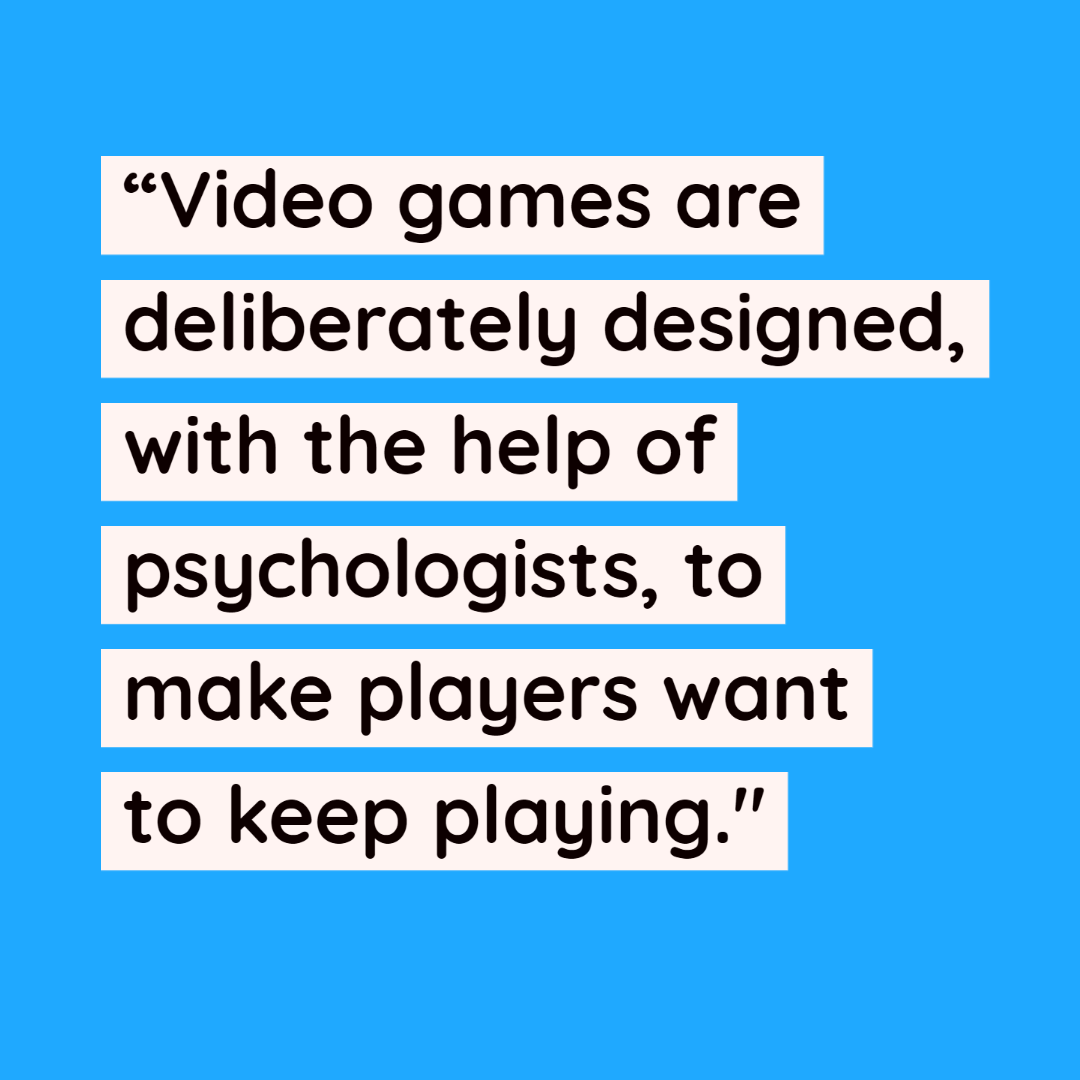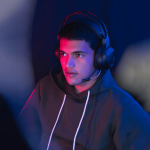Screen time: How do you manage it in your household? Did your children’s screen time increase during the harshest days of lockdown? Hannah Trannah is an early years specialist and child psychologist with some interesting things to say on this subject.

Screen time can’t really be avoided in the connected world in which we live. Hannah, however, is very keen to point out that there’s a big difference between educational, quality screen time and sedentary screen time that doesn’t challenge the youngster.
I think what Hannah had to say was very insightful. It’s the kind of advice parents are calling out for. If you have any comments on it, please leave a comment below.
Hannah, can you please outline your interest in screen time and its impact on children?
With screens virtually everywhere, controlling a child’s screen time can be challenging at the best of times, let alone during the pandemic. With schools shifting to online lessons at home last academic year, children are spending more time in front of computer screens, and many parents relaxed screen time rules for TV and video games.
Given all these unusual stressors, there’s no right answer when it comes to managing screen time during the coronavirus crisis. However, not all screen time is created equal. Quality often matters more than quantity, so it’s important to pay attention to what children are doing online and how they are interacting with screens.
You’ve made interesting comments about how parents should be more concerned with what their children are doing online rather than how much time they are online. I know my children can do wonderfully creative things using tech but I also do my best to get them away from trashy YouTube videos because I don’t believe they have any value. Is that what you mean?
Yes, absolutely. Children’s television and app viewings have skyrocketed since the pandemic began with The Cartoon Network, the Disney Channel, Boomerang and Nickelodeon all reporting viewing increases by as much as 60 percent in a week. Instead of letting children watch too much TV or freely browse the internet, I would encourage parents to seek out interactive or high-quality programmes that are engaging and educational.
This is because there’s a big difference between ‘sedentary screen time’, where a child is sat passively looking at a screen, and active screen-based games, where physical activity or thought is required. There are some great apps, for instance, that can teach children of all ages far more than a game of Candy Crush.
The language app Duolingo is a brilliant way to learn a second language through bite-sized lessons and Monster Math can help to beef up maths skills whilst fighting monsters.
I understand you are also heavily involved with around 20 nurseries in England. How do you work with them?
I am Childcare Development Manager for Storal Learning, a nursery group which owns and operates a growing group of children’s nurseries across England. At Storal we believe that a child’s early years are the most critical time for developing the foundations of learning, behaviour and emotional well-being which all influence later outcomes in life. As such, I work to ensure that each child attending Storal is given all the building blocks they need to develop and mature before starting school.
What of popular video games like Fortnite, Roblox and Minecraft. What impact do these have on children’s development?
In my experience these sorts of games are incredibly addictive, so time spent on them should be strictly controlled. Roblox actually has a time limit function so I’d recommend setting this up and also staying nearby to monitor how long your child is on the game.
Fortnite is actually T rated which means it is not recommended for children under 13, yet many younger children routinely play the game. As an early years and psychology specialist, I would caution against games where the goal is to kill every other player and only take care of yourself. Young children do not have the emotional and cognitive capacity to recognise human needs for partnership and collaboration, so these sort of games can be damaging if played in excess.
Playing video games releases the ‘stress hormones’ of dopamine and which can cause ‘chronic stress’ and hyperarousal. This has an effect on a child’s ability to manage emotions, concentrate and follow directions. Studies have shown that excessive use of video games can cause sight disorders and agitation as well as have a negative impact on physical development. Excess screen time can also have an impact on sleep, which can impact mood as well as cognitive functioning.
A lot of people don’t realise these games are designed to replicate the addictive dopamine effect on the brain. Do you game or app addiction is a real problem?
Yes, video games are deliberately designed, with the help of psychologists, to make players want to keep playing. Some studies have indicated that games can help us learn and grow muscle memory and transferable skills, but they are also incredibly addictive because they tap into the reward centre of the brain and create a positive feedback loop. Later, when a child thinks of the game, serotonin comes across the brain reinforcing the connection to the video game. This in turn leads to an increased desire to play the game again to relive that feeling. It is for that reason that video game addiction is a real condition, so it is really important that your child only plays in moderation to reduce the risk.
I’d also encourage pausing any stimulating activities 30 to 60 minutes before bedtime and where possible, avoid having these in the bedroom at all to avoid temptation.
What activities would you suggest youngsters do online?
The truth is that this will depend on the child in question, as well as their age. A parent knows their child better than anyone else, so they are the best person to decide what and how much media use is the right amount.
- For children under two: Before the age of two no screen time at all is best. Unstructured playtime is more valuable for the brain development of young children and they are more likely learn and remember information from a live presentation than they are from a video.
- For 3 to 6 year olds: Children at this age can benefit from some screen time such as programming with movement, stories and music. If your child likes music, find reputable programming that incorporates singing, like a musical with a soundtrack, that you can listen to later together.
- For 6-9-year olds: I’d encourage parents to engage with their child during their screen time and help connect their media use with real-world experiences by asking him or her questions about what they are learning or watching.
- For 9-13-year olds: Current affairs are important so that children can understand what is going on in the world. There are a plethora of ways in which they can access this, including YouTube, and apps like News-o-matic that encourages interactive news reading habits. This can also open up conversation between parents and their pre-teens. Some other suggestions of apps and games that can be as educational as they are fun are Wattpad (a book app where you can write your own stories and read others) or Kahoot (a quiz playing game with friends).

Would you recommend use of apps such as Freedom, Qustodio and Net Nanny to restrict screen time access and control what apps youngsters are using?
Yes, safety concerns online are very valid so learning about parental controls and safety apps can bring some piece of mind to parents. They’re also a great way to restrict screen time, block dangerous content and monitor your child’s digital activity.
To avoid battles, I’d recommend communicating boundaries before your child starts any device, and sticking to those limits as much as possible as children, especially younger ones, often crave structure.
Any particular games or apps you would recommend?
If wanting to manually set a time limit on your child’s phone use, Apple and Google have recently introduced time management features and apps that allow you to monitor your child’s daily screen time such as Our Pact and Circle. Many home routers and security packages also offer the ability for parents to set time limits and track what children are using online or the consoles themselves often have tools to restrict how they are used.
Any online resources you’d recommend parents could use to control screen time in their households?
The non-profit organisation Child Net has some great advice and links for parents who may be worried about how to control screen time. They offer resources and training for parents on how to best promote safety online. Internet Matters also offers age specific tips and advice and information about how to set up devices, apps and platforms safely.
How can you educate your child to be as safe as possible online?
It’s important to explain to your child what is allowed and what is not, such as sharing personal information online. Encourage them to think critically about what they see on their screens and whether everything on the internet is accurate. For instance, how can they tell if a website is trustworthy?
Anything further to add?
Review all programmes, games and app before allowing your child to view or play with them regardless of their age. I also encourage parents to model the behavior they are asking of their child by limiting their own screen time.
If you enjoyed this interview with Hannah Trannah, you may like my recent post about the British Board of Film Classification (BBFC). The BBFC has taken steps to help parents ensure TV shows and films are age appropriate for families with children.








3 thoughts on “Children’s screen time & content restrictions: Q&A with Hannah Trannah”
We ration our kids on tech, with there Computors etc its a day on and a day off, even on those “Days on” there not on all days, i try to encourage learnign and creative style games, over just shooters etc, same with Ipad’s films, Tv etc… for us setting the boundries early and not giving in has helped alot and kept some consistency
Thanks Liam. I like the idea of a day on / day off. We also try to keep it educational although I wish the kids would show a greater interest in that kind of content. We’ve certainly clamped down on YouTube as much of that content is of poor quality.
Lovely read! Many games can be good for kids socially and educationally but I still think having a screen time limit for kids below a certain age is a good idea. They still need to get outside as well!